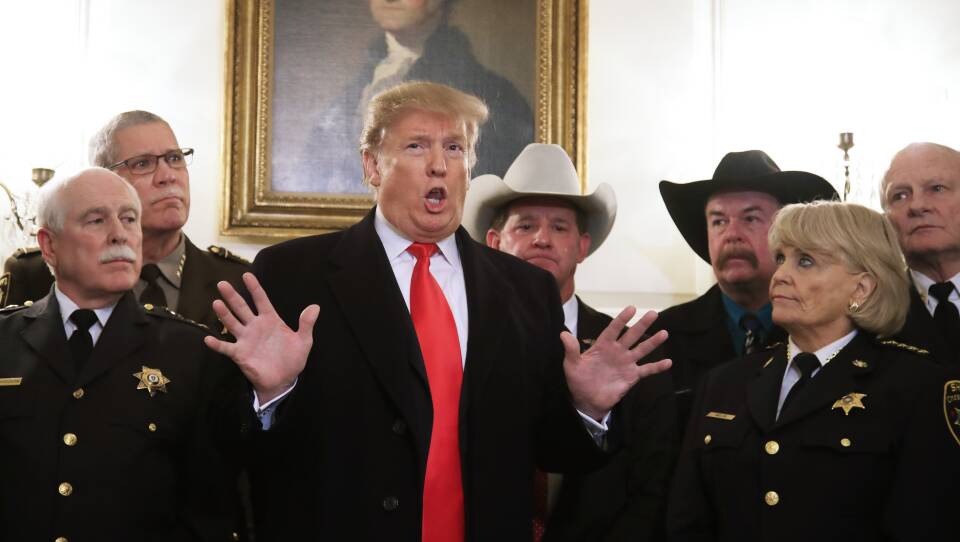Bristol County Sheriff Thomas Hodgson was one of about 20 sheriffs from around the country who met with President Donald Trump to advocate for border security on Monday.
Hodgson said he and the other sheriffs, who were in Washington D.C. for an annual National Sheriffs' Association conference, wanted to let the president know they supported his stance on border security, including more funding for Immigration and Customs Enforcement detention beds to house people who enter the country illegally.
The Trump administration announced last month that it wanted $4.2 billion to support 52,000 ICE beds. Democrats, however, want to cap the number of beds at 16,500 for people who are caught within the United States. The conflict over the beds is one of the issues between Democrats and Republicans that has tied up immigration negotiations as Friday approaches. If the two sides can't come to an agreement on this and whether to fund a wall at the southern border, there could be another partial government shutdown.
Hodgson attended a roundtable conversation with Trump, and stood alongside the president as he spoke at a press conference ahead of his departure to El Paso, Texas, where he will advocate for the border wall along the southern U.S.-Mexico border.
"One of the things I was able to point out at the press conference with the president was the fact that we cannot afford to have Congress dictating how many people we can arrest," Hodgson told WGBH News. "That's essentially what's going on with this whole issue of Congress saying they're going to limit the ICE beds. They're going to try to restrict how many people ICE is going to be able to hold and then let the rest of them out into our communities to commit more crimes."
According to NPR, experts say that immigrants are less likely to commit a crime than people born in the United States.
On Friday, the National Sheriffs' Association and the Major County Sheriffs of America sent a joint letter to Senate representatives in opposition to a cap on the ICE beds.
Hodgson also emphasized the sheriffs' support for the border wall, and said that even though Massachusetts is some 2,000 miles from Mexico, the state's high opioid overdose rate and prevalence of fentanyl is related to what happens there, because of drug smuggling at the border.
"We as a state, we're in as dangerous a situation in Massachusetts as anywhere else," Hodgson said. He added, "We may not be immediately at the border, but we're getting the immediate impacts of what's coming across the drug traffickers, MS-13, the human traffickers. ... Once you get through, you're pushing this stuff [to] all of the United States."
According to the Drug Enforcement Administration, most illegal drugs imported to the U.S. from Mexico, including opioids, are smuggled through legal ports of entry. Only a small fraction comes through parts of the border that would be covered by a wall.






